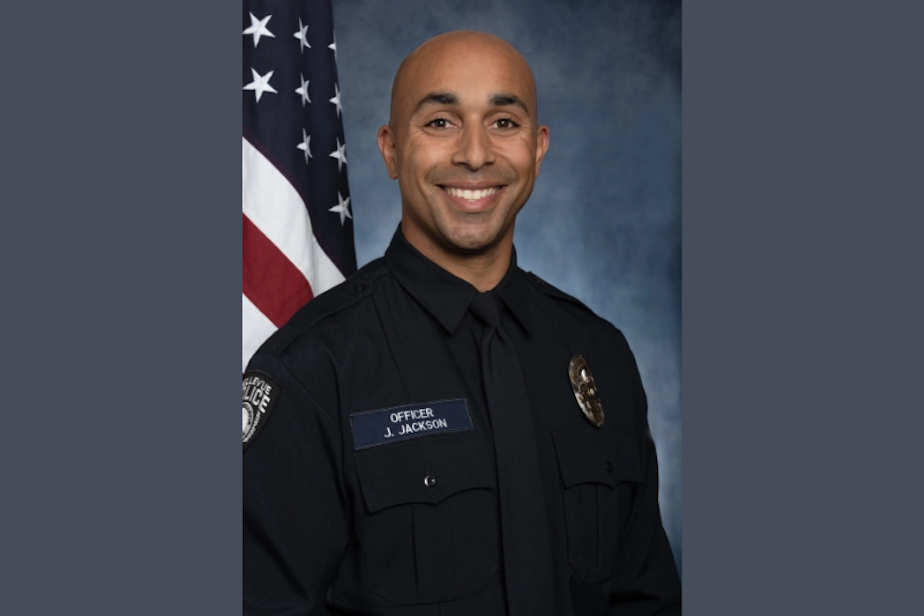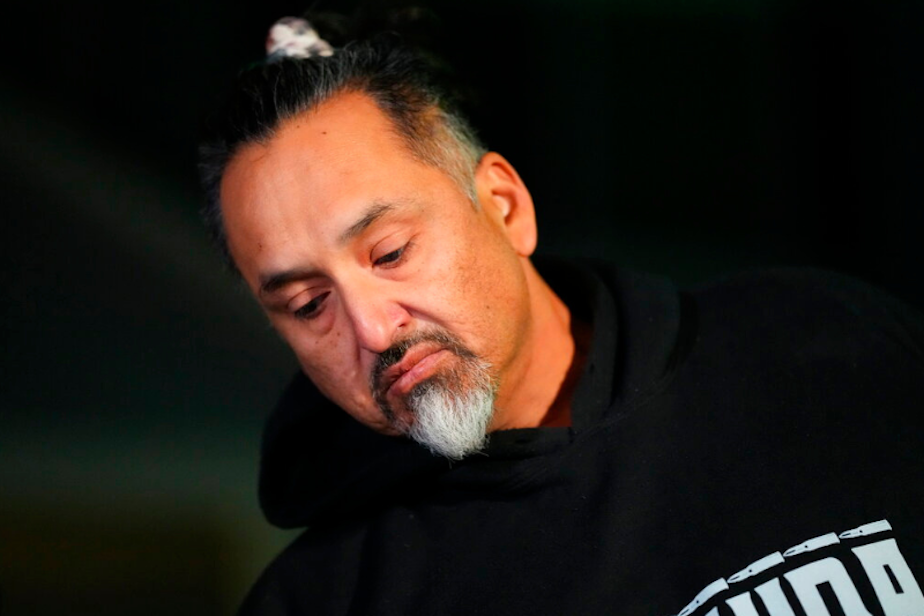Here comes sickness: Today So Far

After a couple years of pandemic precautions, viruses like the flu and RSV are expected to surge, on top of an expected rise in Covid cases. That has hospitals worried.
This post originally appeared in KUOW's Today So Far newsletter for November 22, 2022.
All our Covid precautions over the past couple of years have had a side effect — other viruses were also kept away. That mask, and all that distancing, or working from home, kept the flu and RSV out of our lives. But all that is about to change. Here comes sickness, walking up your street.
We have mostly emerged from our pandemic precautions and are slated to start partying like it's 2019 — holiday dinners, concerts, reunions, travel, your relative forcing you to sit down and watch a photo collage detailing the past year's activities like you're in some sort of family-photo "Clockwork Orange" experiment. These indoor gatherings are breeding grounds for viruses that we haven't had to think about for a while, on top of Covid.
“That’s going to be laid upon the RSV epidemic," Dr. Jeff Duchin with Public Health Seattle & King County told KUOW. "Don’t yet know what Covid will do, although it does like gatherings. We know it spreads more effectively when people come together, all of these viruses spread more effectively when people come together.”
National experts are warning of a "tripledemic" staring with the upcoming holiday. In a way, we are about to intensely experience a new angle on an old phenomenon.
"If you remember, before Covid, every time we gathered for the holidays, somebody got the flu," Dr. Helen Chu told Seattle Now. "I think we are back in that time; viruses are seasonal and they tend to peak in the winter months, when people gather. So we are going to see it ... it is inevitable and you do what you can to keep the vulnerable from getting sick."
Sponsored
"This holiday season is the first season we've had since a lot of pandemic mitigation measures have been lifted. People are traveling more, they are not masking as much indoors, and I think people are more likely to have colds and coughs and go to school and work with those colds and coughs. So what is happening now is all those viruses we didn't see over the past two years — flu and RSV, and all the other respiratory viruses — have now come back. Those numbers are really, really high."
Dr. Chu adds that Seattle Children's Hospital, as well as other regional hospitals, are at capacity because of surges in these viruses. A director at Seattle Children's said recently that its facilities are at "crisis mode" because of RSV. This is of concern for doctors like Chu who know that a lot more cases are on the way. This means emergency services flooded with illnesses on top of that heart attack, or car crash, or overdose, etc.
All these viruses we're talking about are similar — you get a cough, maybe a bit of a cold or a fever. But they affect people differently. Different age groups do better or worse depending on the virus. What do we do? Learn from our recent past. None of this is new. Stay home if you are sick. Mask up if conditions are too cozy. Wash your hands. Keep hand sanitizer ready.
"Those are the things that are going to keep these viruses from spreading, and particularly from causing very young children and older adults from getting very sick with them," Chu said.
To be clear, Dr. Chu said people should "definitely try to gather this year," and that it is important to bring such aspects of our lives back. Rather, be aware of the settings you are in, and be safe. Take extra care and precautions for older adults and children.
Sponsored
Think of it this way, if you drive, you put on your seatbelt. If you go sailing, you wear a life jacket. If you have dinner with your family, you don't talk about religion, politics, or Mac vs PC ... plus, you make sure you're up-to-date on booster shots, and you don't go in the first place if you're sick.
RSV in particular hits children and older adults hard, similar to the flu in some respects. The viruses can more rapidly progress in people with COPD, heart disease, lung conditions, or other health considerations. Same goes for the flu, which has been brewing in the southeastern United States. The expectation is for flu cases to soon rise in the Northwest, Chu said.
"I think people are tired of getting their vaccines, and there is just a lot of Covid fatigue," Chu said. "But what that is going to end up resulting in is increases in numbers of Cases of Covid and the flu. And we think the flu vaccine is actually a really a good match this year. There is still time to get the flu vaccine. It takes two weeks to work. Flu hasn't really arrived in Seattle, so you have time to get vaccinated before flu arrives here."
Dr. Chu is an associate professor of medicine at the University of Washington. Check out the full conversation on Seattle Now.
AS SEEN ON KUOW
Sponsored

Bellevue police are mourning the loss of one of their motorcycle officers following a fatal collision with a car early Monday. Officer Jordan Jackson was riding northbound in the 500 block of Bellevue Way SE around 10 a.m. A car exiting a parking lot struck him on the road. (Bellevue Police Department)
DID YOU KNOW?
I want to send a big thank you to everyone who wrote in with turkey recipe suggestions while sharing what they will be up to this holiday. And yes, just so we're clear, I was joking about expecting a turkey to fully cook in 30 minutes — I'm sure it will only take an hour.
Actually, according to the USDA, it can take between three and five hours to cook a full turkey, depending on the size. The USDA says a turkey should be 165 degrees in its breast, thighs, and wings.
Sponsored
Butterball takes things a bit further and says that a turkey is done cooking when the thighs are 180 degrees, the breast is 170, and the stuffing is 165. Don't hit a bone with your meat thermometer. If you have any specific questions, you can call the Butterball turkey hotline, because that is a thing. If you don't have a thermometer, you can guesstimate that a turkey will be done within a certain amount of time, depending on its weight, in a 325 degree oven. The USDA has a turkey chart for this. Various blogs also detail the "fork method," which is sticking the turkey with a fork in thick parts of the thighs, breast, and so forth. If the juices run clear, that is a good indication. This is not as thorough as a thermometer, however.
One TSF reader suggested carving the turkey in advance of cooking it, in order to speed up cooking times, and ensuring each part is cooked right.
Again, I want to thank all the TSF readers who shared their holiday plans with me. One reader makes chicken instead of turkey for himself and his wife. One "proud dad" is looking forward to turkey that his daughter, and her husband, raised on their Western Washington farm. And another reader is like me and has family working on Thursday, so the big meal will have to wait until Friday or the weekend. Apparently, Saturday is some sort of sporting event, baseball I think? So some folks will be planning around that.
ALSO ON OUR MINDS

Sponsored
The veteran who helped disarm the gunman at gay club says he followed his instincts
When Army veteran Rich Fierro realized a gunman was spraying bullets inside the club where he had gathered with friends and family, instincts from his military training immediately kicked in. First he ducked to avoid any potential incoming fire, then moved to try to disarm the shooter.

